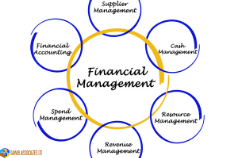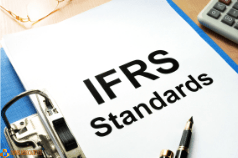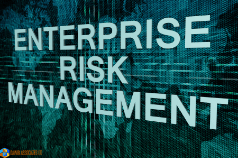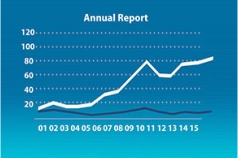
Why You Should Lead With Emotional Intelligence - Confidence
Leadership has never been a bar of chocolate or a basket of Udara; its demands has always been of weights strong enough to make a person question his being. Unlike management, leadership by its adventurous nature littered with puzzles and uncertainties has had some schools of thought address confidence as one of its basic components.
Some others experts address the concept of confidence in leadership as fundamental, which we all can agree to because of the task of leading self and others, making critical decisions, charting new courses, managing resources, strategizing towards a corporate or collective target should reflect from a solid depth of self-assurance and esteem.
According to Tracy Crossley,
“As a leader, there will be crisis and calm times when things are not moving forward. Whatever size the business, it’s important to not fall into overwhelm or overreact. People look to the leader for clues on how to respond to the circumstances and if a leader is confident while taking care of issues, it will help keep the team feeling the same.
Great leadership is about having the confidence to make decisions and not second guess them. Those who inspire others to follow into the unknown, do so possessing self-confidence.â€
Also, in the words of Peter Baron Stark;
“Confidence is the cornerstone of leadership. You can teach a leader to be an effective problem solver; more decisive; a better communicator; how to coach, mentor and hold team members accountable; and many other fundamentals of leadership. Yet, without that leader first believing in himself or herself, true leadership will exist only in title.
A leader that is technically qualified for the position, but lacks confidence, will find it difficult to lead others.â€
Being confident as a leader is way beyond being aggressive in communication or having the assertive stance, which at the end of the day, such display or attitude usually erupt from insecurity or lack of confidence. Confidence stirs from the depth of clarity which is a major impact of emotional intelligence.
Leadership places a huge demand on one’s capacity to understand and manage emotions both of self and of others, of which the absence of emotional intelligence in a leader can unloosen the bolts and screws holding parts together.
A leader by emotional intelligence displays stability and control of emotions in the face of overwhelm or chaos which goes a long way to affect the team because emotions are contagious. When a leader lacks emotional intelligence, his inability to control his impulse or emotions can destabilize the flow of operation in the team or even water down the morale of the staff. There certainly will be tough days and tougher days in leadership, but the confidence of the leader holds the team together.
Leaders who by emotional intelligence are confident enjoy loyalty and followership because confidence breeds attraction and reliance of the team on the leader having perceived him as being stable. It gives a sense of stability and breeds trust. No one wants to follow an unsure leader or play behind an uncertain captain. Despite the wealth of skills or resources, without confidence, a team can barely win or grow.
Confidence in an emotionally intelligent leader breeds an environment of positivity and optimism for an organization to strive in. Irrespective of daunting challenges, strength, and courage to dare is sustained in a team that enjoys a confident leader. One of the characteristics of leadership is its daring and adventurous move to try new grounds and grow new heights which without confidence in a leader, such risk and uncertainty cannot be taken.
One of the vitalities of leading with emotional intelligence as regards being a confident leader is that it forms inclusiveness in the team whereby the leader does not feel insecure to admit mistakes and welcome input from the team members. People don’t necessarily want to follow a perfect person as much as they would loyally follow a real person; so when a leader knows his ability and limits and is real (confident) enough to admit mistake or ignorance he inspires genuity by being vulnerable.
A confident leader creates a culture of inclusiveness and is not bothered by criticism or feedbacks. By confidence, a high EQ leader fosters communication in his team; he gives opportunities for employees to have a voice and share ideas because he understands that his leadership is dependent on their voluntary emotional loyalty and the entire operation of the organization is beyond his person.
When members of a team know that their feedback, recommendation or evaluations are valued or considered by the leader, then they are inspired to commit overwhelmingly to the progress of the team. But insecure leaders can’t afford to connect deeply with their team and appear vulnerable.
Emotionally intelligent leaders are not perfect, but they are real.
Their confidence afford them the ability to be real both to themselves and to their organization. At any time, they can afford honest self-evaluation and do not shy away from reinventing themselves towards better reality. Many organizations today suffer retrogression not for the want of resources or facilities, but for an emotionally unintelligent leadership that lacks confidence towards change and openness to learn, unlearn and relearn operational systems beyond their comfort.
In a world and age that enjoys the harsh continuity of change across cultures, demographics, industries, and lifestyles, without confidence, a leader cannot drive her team towards relevance amidst the revolution. To retain relevance in our world of revolution, the leadership of a team or organization should have the skills and ability to be flexible yet stable. Stable in her core values and essence of operation, but flexible in her approach, strategy, design, scheme, and roadmap towards achieving and improving on their essence.
They are stable on their WHY, and flexible on their WHAT and HOW.
A leadership or organization that lacks the power to reinvent itself will lack the ability to retain relevance or grow into higher terrains of operation; such leadership is the type that lacks confidence; lack of confidence, a consequence of a leadership that is not emotionally intelligent.













































































